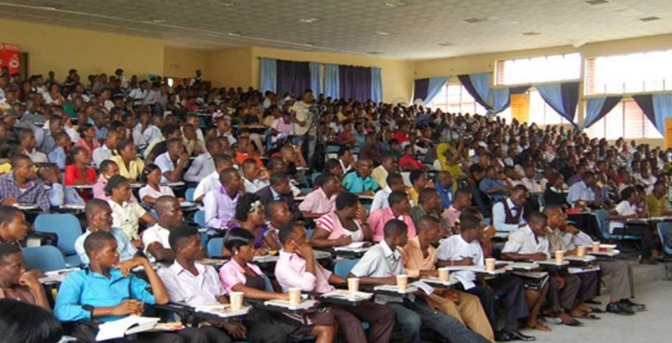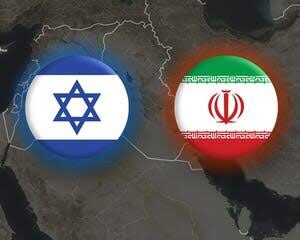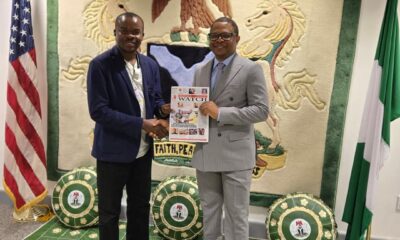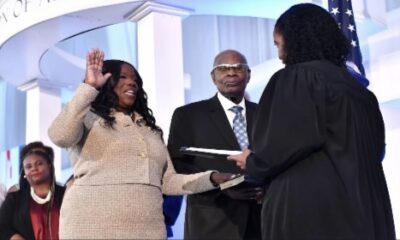Analysis
Nigeria’s Misguided Ban On Under-18 University Admissions: A Temporary Reprieve

The Nigerian government’s recent ban on university admission for students under 18 was put on hold at the Joint Admissions and Matriculation Board (JAMB) policy meeting, following protests from stakeholders, including Vice Chancellors and Registrars of universities. The ban was rescinded for the current admission cycle after it was argued that students who had already taken the Unified Tertiary Matriculation Examination (UTME) and were awaiting admission should not be penalized. However, according to the Minister of Education, Professor Tahir Mamman, the ban is likely to be enforced from the next cycle, a move that will harm Nigeria’s future.
This blanket ban ignores global best practices and will stifle academic excellence. Harvard University, for instance, has a long history of admitting students as young as 16, provided they meet the academic requirements and have parental support. Oxford and Cambridge Universities also consider students under 18 for admission, with some colleges admitting students as young as 16.
Around the world, teenagers are already making a significant impact in various fields. For example, Spanish football sensation, Pedri, became a professional player at 16 and has already won several international titles. Similarly, American golfer, Akshay Bhatia, turned pro at 17 and has won several tournaments. In the world of art, Nigerian-born British author,
Faridah Àbíké-Íyímídé, published her debut novel at 18 and has received critical acclaim. In Nigeria, thousands of students under 18 sit for the Joint Admissions and Matriculation Board (JAMB) exam annually. In 2022, over 7,000 candidates under 18 wrote the exam. In 2021, over 6,000 candidates under 18 took the exam. These students deserve the opportunity to pursue higher education, regardless of their age.
Rather than imposing a blanket ban, the government should focus on raising academic standards and providing support systems for younger students. This could include setting higher academic requirements for younger students, providing mentorship programs, and addressing infrastructure and resource challenges in schools. By doing so, Nigeria can nurture its young talents and promote academic excellence.
While the temporary reprieve is welcome, the government must reconsider the ban and adopt a more inclusive approach that promotes academic excellence and nurtures young talents. We urge the government to prioritize education and promote policies that support academic excellence, rather than stifling it.
Analysis
Nigeria Academic Union, ASUU Elects New President

Nigeria Academic Union, ASUU Elects New President
The Academic Staff Union of Universities (ASUU) has elected Professor Chris Piwuna, a consultant psychiatrist at the University of Jos Teaching Hospital, as its new president.
Prof. Piwuna, who also serves as the Dean of Student Affairs at the University of Jos, succeeds Prof. Victor Osodeke, a professor of soil science at Michael Okpara University of Agriculture, Umudike, Abia State.
His election took place during the 23rd National Delegates Congress of the Union, held on Sunday in Benin City, Edo State.
Prof. Piwuna emerged victorious over Prof. Adamu Babayo of Abubakar Tafawa Balewa University, Bauchi, in a closely contested vote.
His emergence comes at a critical time for the union, with growing speculation about a potential industrial action. This follows disputes over the allocation of recently released earned academic allowances, ongoing concerns about brain drain, and other unresolved issues in the university system.
It will be recalled that on April 23, 2025, the Minister of Education, Dr. Maruf Alausa, announced that President Bola Ahmed Tinubu had approved the release of N50 billion to settle outstanding allowances owed to university staff.
Analysis
Nigeria Ranked 5th Globally, 3rd In Africa As Most Generous Country In World Giving Index 2024

In a remarkable display of generosity, Nigeria has been ranked the third most generous country in Africa and fifth globally, according to the Charities Aid Foundation World Giving Index 2024. Despite facing economic and humanitarian challenges, Nigeria’s ranking is a testament to the country’s spirit of giving and willingness to help those in need.
The World Giving Index, which surveyed over 145,000 people across 140 countries, found that 72% of the world’s adult population gave money, time, or helped a stranger in 2022. Indonesia topped the global rankings, followed by Kenya, which emerged as the most generous country in Africa.
Nigeria’s ranking is impressive, considering the country’s economic challenges. The report highlights the importance of generosity and volunteering, citing Kenya’s high ranking as an example of the “utu” spirit, which signifies humanity.
The World Giving Index also noted that government initiatives can play a significant role in encouraging charitable activity, citing Singapore’s rise in the rankings as an example. The country’s government has implemented schemes to encourage partnerships between charities and businesses, as well as tax relief and government matching on charitable donations.
The report’s findings demonstrate that people across continents and cultures remain willing to help those in need, even in the face of economic and humanitarian challenges. Nigeria’s ranking as the fifth most generous country globally is a testament to the country’s resilience and generosity.
Read Also
From Front-Runner To Follower: Nigeria’s Economic Decline
Analysis
North Korea To Reopen To International Tourists After Five-Year Hiatus

North Korea is set to welcome back international tourists by the end of the year, according to travel agencies, but experts warn that the long-awaited opening up could be hindered by political tensions and harsh winters. The country sealed its borders and banned international visitors in early 2020 due to the Covid-19 pandemic, but now plans to reopen to tourists, starting with the city of Samjiyon, near the Chinese border.
The apparent decision to lower the drawbridge has been welcomed by tour companies, but some North Korea watchers say plans to resume tourism after almost five years of pandemic-enforced isolation are fraught with problems. North Korean state media have yet to comment on the reported opening up, although Kim Jong-un has taken a personal interest in developing the tourism infrastructure and spoken of his desire to welcome visitors from “friendly” nations, China and Russia.
The official motivation has changed little since the North banned foreign tourists in 2020 – namely, to showcase a modern, content country centered on unwavering public devotion to three generations of the Kim dynasty. The first visitors are expected to be confined to Samjiyon, described by North Korea as a “socialist utopia” and “a model of highly civilized mountain city”. The destination, which reportedly boasts new apartments, hotels, and a ski resort, is a gateway to Mount Paektu, the highest peak on the peninsula and considered the mythical birthplace of a united Korean people – a place of pilgrimage that supports the cult of personality surrounding the family that has ruled with an iron fist since the country’s foundation in 1948.
Koryo Tours, which was forced to put visits on hold at the start of the pandemic, welcomed the reported resumption of tourism, adding that the move would probably extend to the rest of the country. “Having waited for over four years to make this announcement, Koryo Tours is very excited for the opening of North Korean tourism once again,” the Beijing-based firm said on its website, adding that its local partner would confirm itineraries and dates in coming weeks.
A second travel agency, Shenyang-based KTG Tours, also announced that tourists would be able to visit Samjiyon from this winter. But some experts said the plans could fall foul of the harsh weather that grips the remote Samjiyon area in winter, along with poor local infrastructure and, for Westerners, a reluctance to travel to a country that has become more aggressive in recent years.
“I can’t see how Samjiyon, being one of the more isolated tourist destinations within the DPRK, would be the first for the Koreans to try and open for the broader tourism market,” Rowan Beard, the manager of Young Pioneer Tours, told the NK News website, using the country’s official name, the Democratic People’s Republic of Korea.
Travel industry officials said they expected the first wave of tourism to be dominated by Chinese nationals and, in light of Kim’s recent meetings with Vladimir Putin, people from Russia. “I suspect that the powers that be in Pyongyang believe it’s time to open the borders like all other ‘normal’ nations have since the pandemic ended,” said Prof Dean J Ouellette, an expert in North Korean tourism at the Institute for Far Eastern Studies at Kyungnam University. “That means opening up to international tourists, whether or not many decide to go, or are allowed by their governments to visit, or are even allowed entry by North Korean authorities because of their nationality.”
China is by far the most important market, with Chinese nationals making up about 90% of tourists to North Korea before Covid-19. Experts say a record 300,000 foreign tourists visited North Korea in 2019, earning the country between $90m and $150m. While the North is far from dependent on tourism for foreign currency, the injection of cash could boost its coffers.
“If there is a return to the heyday of Chinese tourist arrivals … North Korea could possibly earn an $100m to $175m,” Ouellette said. “For a heavily sanctioned and self-isolating economy like North Korea, that is not an insignificant amount.” But Chinese leaders have voiced reservations about North Korea’s supply of weapons to Russian forces in Ukraine and are cautiously following Kim’s closer relationship with Putin.
Read also : North Korea’s Olympic Return Sparks Hope For A Brighter Future
“I don’t think we will see a return to those high tourist numbers until Pyongyang repairs relations with Beijing,” Ouellette said. Tourism to the North was strictly limited before the pandemic, with tour companies saying about 5,000 western tourists visited each year. Americans made up about 20% percent of the market before the US banned its citizens from going there as tourists after the 2017 death of the university student Otto Warmbier.
Cockerell said much had yet to be decided about itineraries, but that tourists would continue to be closely watched. “The main system remains unchanged, with guided tours only and no
-

 News1 week ago
News1 week agoPutin Condemns U.S. Strikes on Iran, Warns of Escalating Global Danger
-

 News6 days ago
News6 days agoNigeria’s Consul General in New York Receives Diaspora Watch Publisher, Boniface Ihiasota
-
Features6 days ago
Guyana, CDF Sign US$18m Agreement for Agricultural Development
-

 Business6 days ago
Business6 days agoEU, Liberia Sign €25m Agreement to Boost Private Sector Development
-

 News1 week ago
News1 week agoIsrael Bombs Iran’s Evin Prison as U.S. Joins Conflict: Tensions Soar in Middle East
-

 Milestone6 days ago
Milestone6 days agoAisha Braveboy Sworn in as Prince George’s County Executive, Appoints New Police Chief










